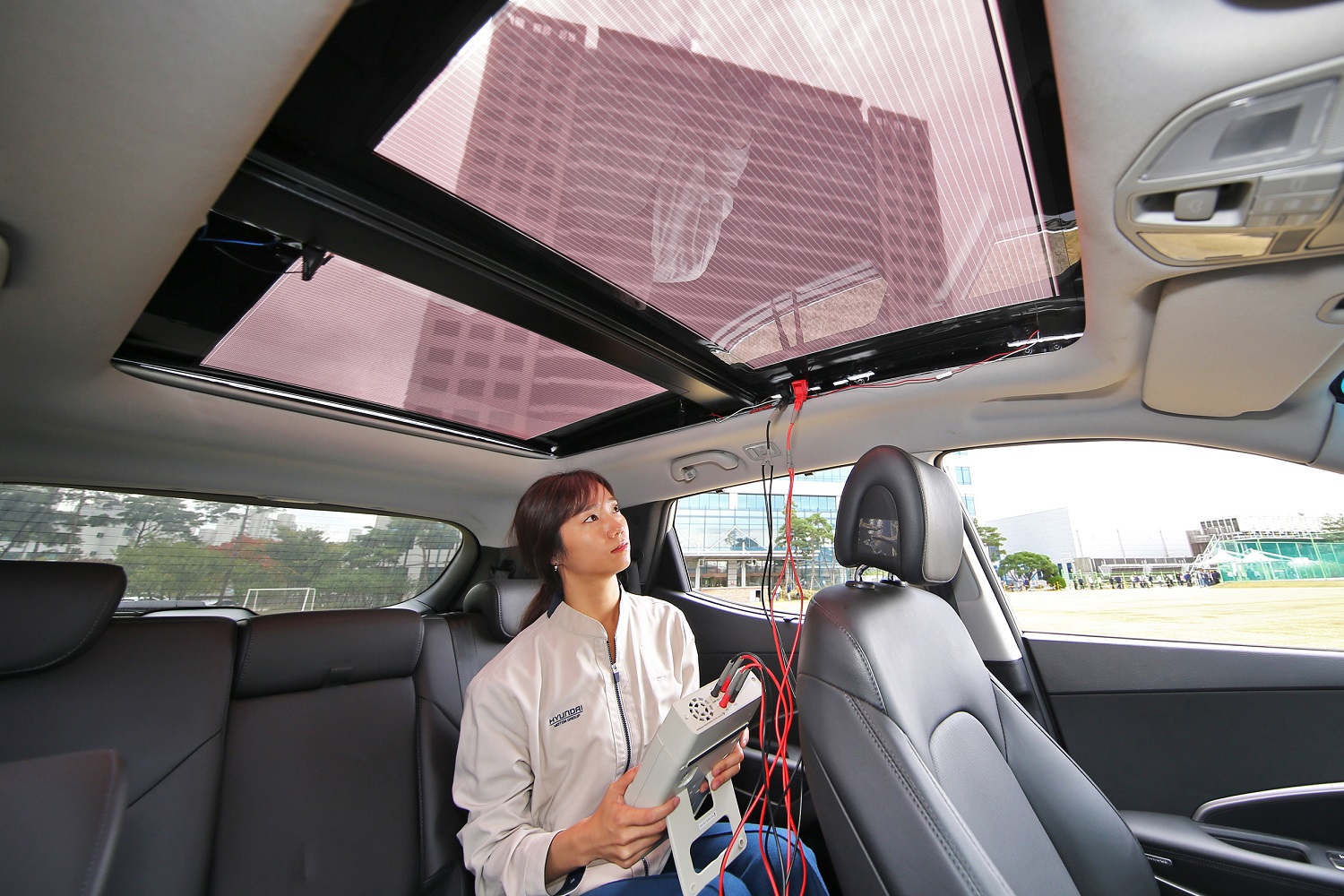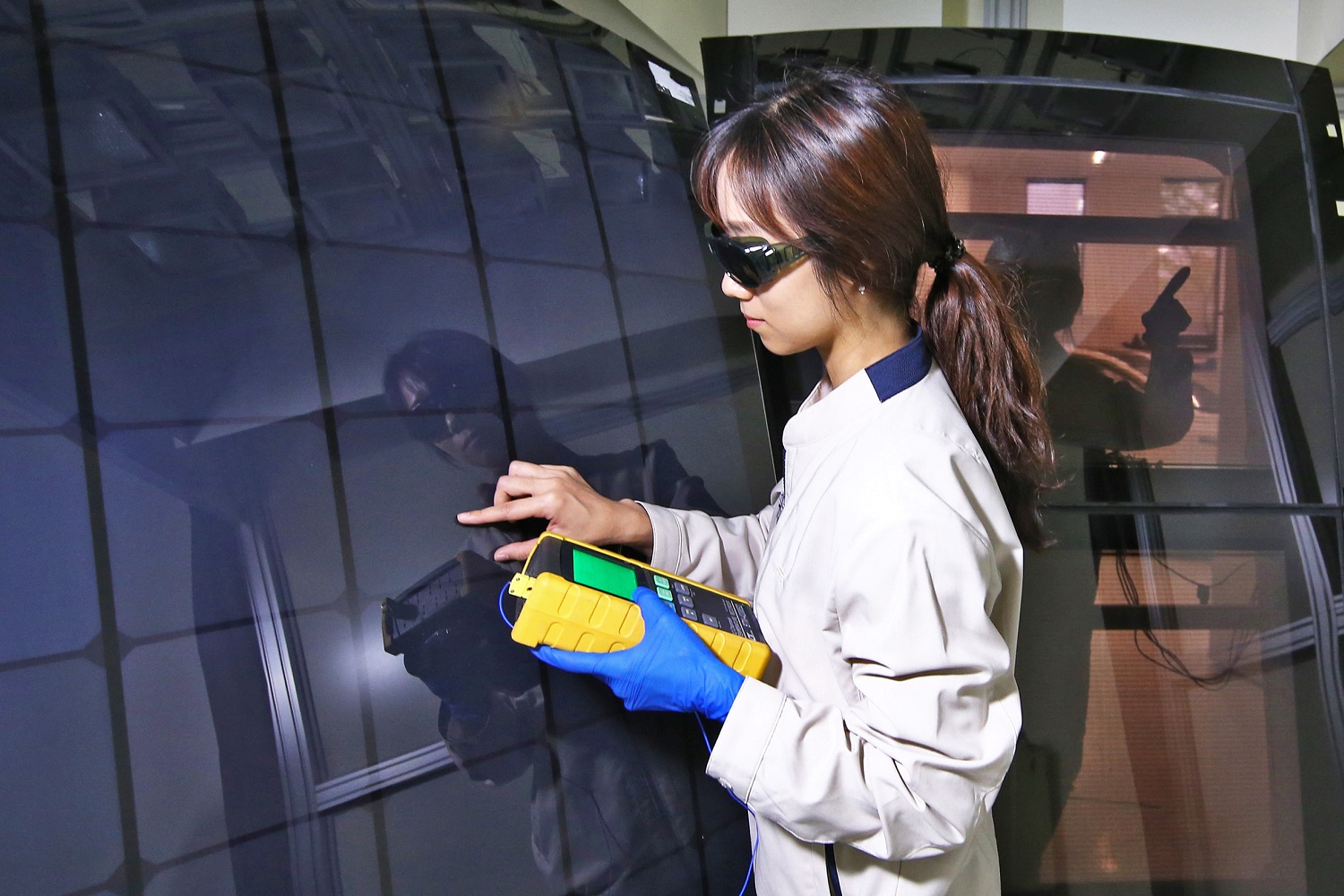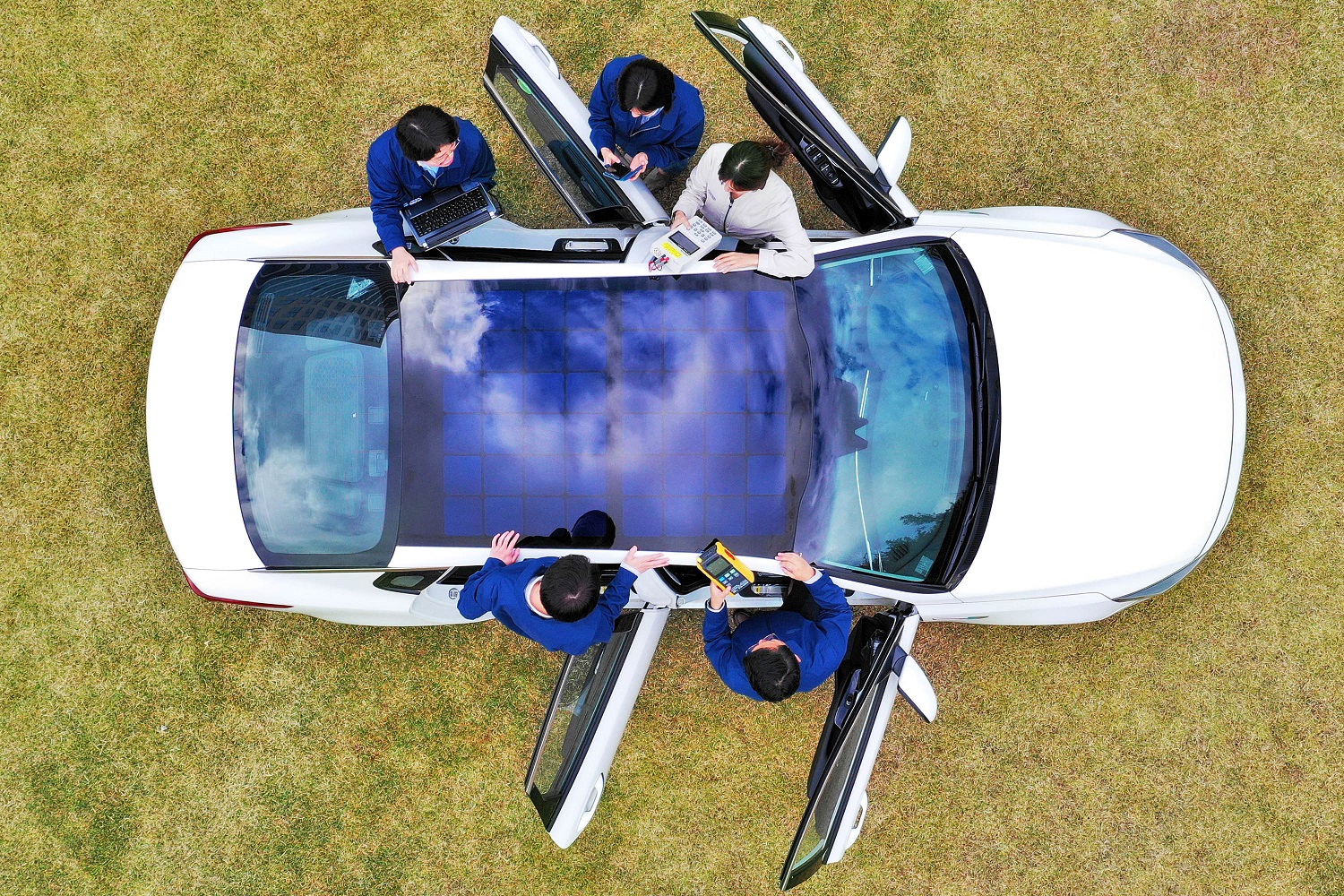Hyundai envisions a future in which motorists intentionally leave their car in the scorching sun all day. The South Korean firm is developing solar panels for cars as a way to make them more efficient, more convenient to drive, and, in the case of a hybrid or an electric model, less dependent on the power grid.
The technology consists of a solar panel (located on the vehicle’s roof, in this case), a controller, a battery pack, and wires to link the components together. The panel generates electricity while the controller transforms it to the standard voltage before sending it to the battery. The first generation of this technology can charge between 30 to 60 percent of a hybrid car’s battery per day. The amount of juice channeled to the pack depends on its size and on the intensity of the sunlight. You’re more likely to see a 60-percent charge if you live in Arizona than if you live in Oregon.
And Hyundai is developing two further generations of this technology as well.
The second-generation technology is being developed for gasoline- and diesel-powered cars not equipped with any kind of hybrid assistance. It’s built around a semi-transparent panel that doubles as a panoramic roof, a cool feature that, if launched today, would be unique on the market. In this application, the electricity generated by sunlight goes to the regular battery or to an additional battery installed specifically for storage purposes. It’s then fed to the car’s electrical system to help power accessories like the infotainment system and the climate control system.
The third-generation technology is the most futuristic of the three. It relies on a solar lid system currently in development to maximize power generation by integrating solar panels into the roof and the hood of an electric or hybrid car. Once ready for production, this technology will allow owners of hybrid and electric cars to reduce their dependence on the power grid. It will also transform the car into a power generator and dispenser; an electric truck could use sunlight-generated electricity to power a drill on a work site in a remote area, for example.
“In the future, various types of electricity-generation technologies, including the solar charging system, will be connected to vehicles. This will enable them to develop from a passive device that consumes energy to a solution that actively generates energy,” explained Jeong-Gil Park, the executive vice president of Hyundai’s engineering design division, in a statement.
The first generation of Hyundai’s solar roof will reach production after 2019. Sister company Kia will have access to it, too, but there’s no word yet on which vehicle(s) it will make its debut on. The South Korean company hasn’t discussed timing for the launch of its second- and third-generation technology.
Hyundai isn’t the first company to experiment with roof-mounted solar panels. In Japan, the plug-in hybrid version of the Toyota Prius can receive a solar panel at an extra cost. The technology isn’t legal in the United States because the glass the panel is embedded in can shatter in the event of a rollover, but Toyota believes that the relevant legislation will change in the coming years. Saab experimented with similar technology in 1985 but never brought it to production.






